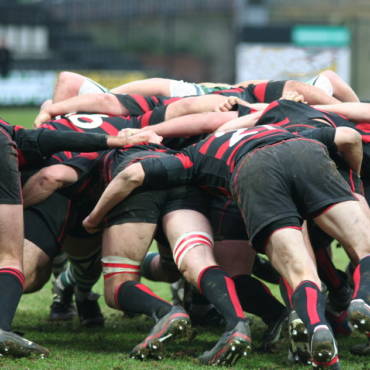Lots of athletes go to the Olympic Games – very, very few come back with a medal or even a personal best performance.
Why?
Lack of Talent? Maybe.
Poor Skill? Possibly.
The wrong parents, i.e. Genetics? Could be.
But the main reason most of them don’t win a medal is that they made five dumb (and avoidable) mistakes in the period between their selection for the Olympic team and their Olympic Games competition.
Olympic Mistakes: The Top Five Dumb Things Athletes and Coaches do heading into an Olympic Games.
Dumb mistake number one: They changed too many things between the time they got selected and the Olympic Games.
This is without doubt the number one – the dumbest of the dumb.
Athletes spend ten years getting to the top, finally get there, win selection into their nation’s Olympic team and then change a heap of the things that got them there in the first place: different equipment, more supplements, new training program, different taper and peaking routine, new haircut……you name it: they change it.
The smartest athletes – the ones who will win medals at the Olympic Games – are those who “tweaked” their preparation in a few targeted, strategic areas but retained 99% of their pre-Olympic selection Trials program. They focused on their strengths – because it will be their strengths that see them successful at the ‘Games. They focused on the things that will make the difference – the things that will directly contribute to them winning when it matters.
Dumb mistake number two: They put too much pressure on themselves.
In most sports, the rules and regulations of the sport are the same all over the world at every level of elite competition.
In many cases – e.g. swimming, track and field, fencing, table tennis, martial arts and others – even the competitive environment is the same size and dimensions where ever you compete.
So the only difference between the competitive environment in the Olympic Games and that of other places around the world is that athletes perceive it is different. They put unnecessary pressure on themselves by making more of the Olympic competition environment than they need to.
It’s just another day – another competition – another event.
Put a wooden beam 10 centimetres wide and 5 metres long flat on the ground. Walk on it from one end to the other.
Easy.
Now put that same wooden beam 500 metres in the air and walk along it from end to end.
Still Easy????? No way!
Why? It’s the same task. You have the same skills. You have proven you can do it.
It’s your perception and fear of the environment that makes it difficult.
And that’s why “putting pressure on themselves” is dumb mistake number 2.
Dumb mistake number three: They lost balance and perspective.
Another silly thing to do. Athletes get selected in their national Olympic team and start focusing every second, every thought, every molecule into preparation for the ‘Games.
They give up work.
They move overseas for an extended training camp – away from their friends, their family, their home and their support system.
They stop having days off training for rest and recovery.
They stop finding time for social activities and fun.
As a result, everything that was normal and had kept them grounded and balanced is put aside and they create an unbalanced, high stress, abnormal preparation environment – one that is bound to fail.
Dumb mistake number four: They took too much time off after selection trials.
Dumb and Dumber. The only common factor in all successful Olympic campaigns is consistent hard work in preparation. Many athletes treat making the team as an end in itself and spend a month celebrating, doing media, organising sponsors, ringing everyone they have known since they were five years old and generally having a great time.
Problem is, they not only lose valuable preparation time during their celebrations but it may take weeks or even months to get back to where they were before the Olympic selection process. The only thing they will win is the dance competition after the Olympic Games closing ceremony.
Dumb mistake number five: Listening to people who have been there.
This comment in itself probably sounds a bit dumb, but listening to people who have been to a previous Olympic Games and taking their advice about what’s right for you – is really dumb.
The essence of greatness is uniqueness – it’s difference – it’s being yourself. Too many athletes go to an Olympics and run the race or play the game of someone else.
They listened to someone who said, “you must do this at the Olympics” and “you must never do that at the Olympics” and as a result followed advice that was great……..for someone else – someone who competed at a different Olympics, in a different city, in a different time, when your sport was in all likelihood very different to what it is now.
If you get the chance to talk to someone who has competed at the ‘Games, listen to them, ask questions, learn from them – sure – but importantly – do not copy them.
Do it your way. The great ones have been the athletes who did it differently – who did it their way.
Be one of them!
Wayne Goldsmith




4 Comments
How about 6: letting the governing body use them for promotion purposes to secure funding for the next cycle.
Lot of administrators panicking about their jobs after September.
Thanks James,
Same all over the world. Lots of shuffling of jobs after every Games.
I still see the same systems being replicated all over the world again and again with no real innovation or creativity.
Rio will be the same – they will replicate the government systems that the UK put in place, who copied Australia, who copied……etc. etc. etc. For an industry that talks about best practice, cutting edge, benchmarking etc – sport is pretty much the same as it was 20 years ago – just different place, different time, different people – but doing the same things.
WG
I agree with James
Thanks Jacob.
Challenge for every sport – every nation is….. you expect your athletes to be “gold medal” standard, you expect your coaches to be “gold medal” standard, but is your administration, leadership, Board and Executive Management team also “gold medal” standard?
My experience is that in the most successful sports and the most successful nations, the same “gold medal” standards apply to everyone and everthing associated with the organisation.
WG
Comments are closed.